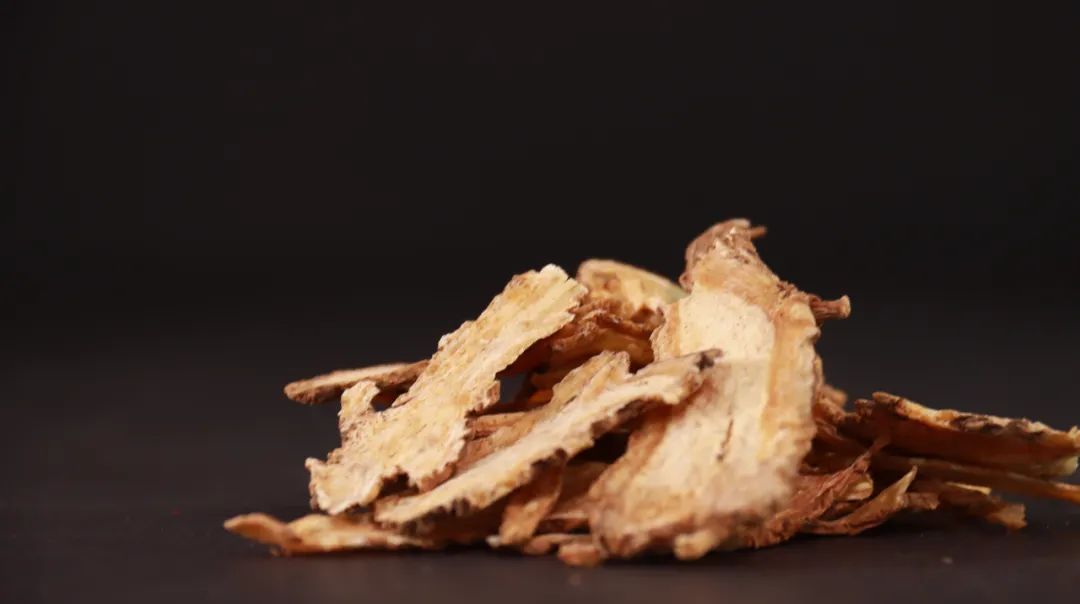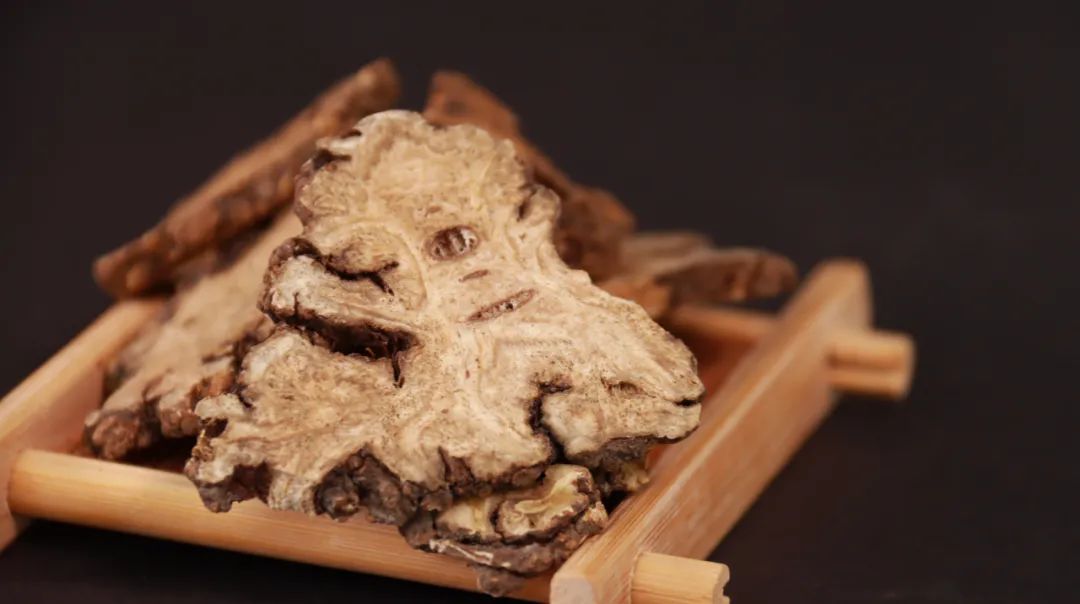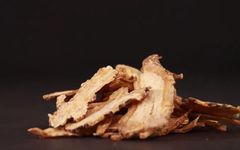This public account is hosted by the Yunnan Provincial Administration of Traditional Chinese Medicine. If you have not followed yet, please click the blue “Yunnan TCM” above to follow. In the 5,000 years of Chinese civilization, traditional Chinese medicine (TCM) has always been a cultural treasure. Among the various herbs, one particular herb, known for its unique effects in invigorating and replenishing blood, is widely used in gynecology and is hailed as “the ginseng for women”; this herb is Angelica Sinensis (Dang Gui). Today, let us get to know Angelica Sinensis.1. Historical and Cultural Background of Angelica Sinensis
In the 5,000 years of Chinese civilization, traditional Chinese medicine (TCM) has always been a cultural treasure. Among the various herbs, one particular herb, known for its unique effects in invigorating and replenishing blood, is widely used in gynecology and is hailed as “the ginseng for women”; this herb is Angelica Sinensis (Dang Gui). Today, let us get to know Angelica Sinensis.1. Historical and Cultural Background of Angelica Sinensis Angelica Sinensis, also known as Dang Gui, Gan Gui, Qin Gui, Yun Gui, Si Gui, Min Gui, and Fan Hun Xiang, is the dried root of the plant belonging to the Apiaceae family. As early as in the Shen Nong Ben Cao Jing (Shen Nong’s Classic of Materia Medica), Angelica Sinensis was listed as a superior herb, recorded for its effects of “tonifying deficiency, moistening dryness, and nourishing blood.” Throughout history, Angelica Sinensis has gradually become an important component in TCM formulas, used to treat various deficiency syndromes and blood disorders. Its medicinal history spans over 1,700 years, with a cultivation history of over 1,500 years.2. Medicinal Value of Angelica Sinensis1. Blood Nourishing and Invigorating:Angelica Sinensis contains various active components, such as volatile oils, polysaccharides, and vitamins, which can promote blood circulation, increase red blood cell count, and enhance the oxygen-carrying capacity of red blood cells, thus achieving blood-nourishing effects. It is beneficial for symptoms such as anemia and irregular menstruation.2. Regulating Menstruation and Alleviating Pain:Angelica Sinensis has a good effect on regulating menstruation and can relieve dysmenorrhea and discomfort during menstruation. Additionally, it can soothe uterine muscle spasms and reduce pain.3. Moistening the Intestines and Promoting Bowel Movements:The volatile oils and polysaccharides in Angelica Sinensis can lubricate the intestines, stimulate intestinal peristalsis, and increase stool bulk, which can help improve constipation.4. Anti-Fatigue:The polysaccharides in Angelica Sinensis have the effect of enhancing the body’s immunity and combating fatigue, making it beneficial for individuals who often feel tired.5. Antioxidant and Anti-Aging:Angelica Sinensis is rich in vitamin E and polyphenolic compounds, which have strong antioxidant properties, capable of eliminating free radicals in the body and delaying cellular aging.3. Applications and Dietary Therapy Methods of Angelica SinensisAs a medicinal food, Angelica Sinensis is often used in soups, teas, and medicinal dishes, with a recommended dosage of 6-12g. The dietary therapy methods are as follows:1. Angelica Sinensis Chicken Soup:Combine Angelica Sinensis, chicken, and various seasonings in a stewing pot, add an appropriate amount of water, and steam for several hours.This soup has the effects of nourishing blood, benefiting qi, and nourishing yin, suitable for individuals with anemia and physical weakness.
Angelica Sinensis, also known as Dang Gui, Gan Gui, Qin Gui, Yun Gui, Si Gui, Min Gui, and Fan Hun Xiang, is the dried root of the plant belonging to the Apiaceae family. As early as in the Shen Nong Ben Cao Jing (Shen Nong’s Classic of Materia Medica), Angelica Sinensis was listed as a superior herb, recorded for its effects of “tonifying deficiency, moistening dryness, and nourishing blood.” Throughout history, Angelica Sinensis has gradually become an important component in TCM formulas, used to treat various deficiency syndromes and blood disorders. Its medicinal history spans over 1,700 years, with a cultivation history of over 1,500 years.2. Medicinal Value of Angelica Sinensis1. Blood Nourishing and Invigorating:Angelica Sinensis contains various active components, such as volatile oils, polysaccharides, and vitamins, which can promote blood circulation, increase red blood cell count, and enhance the oxygen-carrying capacity of red blood cells, thus achieving blood-nourishing effects. It is beneficial for symptoms such as anemia and irregular menstruation.2. Regulating Menstruation and Alleviating Pain:Angelica Sinensis has a good effect on regulating menstruation and can relieve dysmenorrhea and discomfort during menstruation. Additionally, it can soothe uterine muscle spasms and reduce pain.3. Moistening the Intestines and Promoting Bowel Movements:The volatile oils and polysaccharides in Angelica Sinensis can lubricate the intestines, stimulate intestinal peristalsis, and increase stool bulk, which can help improve constipation.4. Anti-Fatigue:The polysaccharides in Angelica Sinensis have the effect of enhancing the body’s immunity and combating fatigue, making it beneficial for individuals who often feel tired.5. Antioxidant and Anti-Aging:Angelica Sinensis is rich in vitamin E and polyphenolic compounds, which have strong antioxidant properties, capable of eliminating free radicals in the body and delaying cellular aging.3. Applications and Dietary Therapy Methods of Angelica SinensisAs a medicinal food, Angelica Sinensis is often used in soups, teas, and medicinal dishes, with a recommended dosage of 6-12g. The dietary therapy methods are as follows:1. Angelica Sinensis Chicken Soup:Combine Angelica Sinensis, chicken, and various seasonings in a stewing pot, add an appropriate amount of water, and steam for several hours.This soup has the effects of nourishing blood, benefiting qi, and nourishing yin, suitable for individuals with anemia and physical weakness. 2. Angelica Sinensis, Ginger, and Lamb Soup:Cut lamb into strips, add a small amount of Angelica Sinensis and ginger, and boil with an appropriate amount of water. Add salt and wine for seasoning, and simmer until tender.This soup is effective for abdominal cold diseases caused by blood deficiency and cold stagnation, as well as for postpartum cold abdominal pain or dysmenorrhea caused by cold deficiency.3. Angelica Sinensis, Brown Sugar, and Ginger Tea:Place Angelica Sinensis, ginger, and brown sugar in a cup, and pour in boiling water.This tea has the effects of warming the meridians, dispelling cold, and invigorating blood circulation, suitable for symptoms such as dysmenorrhea caused by cold stagnation and abdominal pain due to postpartum lochia retention.4. Angelica Sinensis, Goji Berries, and Red Dates Tea:Put Angelica Sinensis, goji berries, and red dates in a cup, and pour in boiling water.This tea has the effects of nourishing blood, benefiting qi, and nourishing the liver and improving eyesight, suitable for individuals with blurred vision, dizziness, tinnitus, and fatigue due to liver and kidney deficiency.4. Usage and Precautions of Angelica Sinensis1. Avoid Overuse:Angelica Sinensis is pungent, dispersing, and warming, with a dry nature that can easily lead to significant dietary contraindications. Overuse may result in symptoms such as drowsiness, and in severe cases, can lead to mouth sores, dizziness, headaches, nausea, and vomiting.2. Caution for Specific Populations:Pregnant women, individuals with internal heat, adolescents, children, infants, patients with colds and fevers, those with excessive menstruation, and patients currently experiencing bleeding should avoid using it.5. ConclusionAngelica Sinensis, this seemingly ordinary medicinal herb, is a commonly used ingredient in various herbal combinations. Scholars have noted that “nine out of ten herbs contain Angelica Sinensis,” indicating its frequent presence in TCM formulas. However, we must still pay attention to its contraindications and precautions during use to ensure its safe and effective medicinal properties. Let us better explore and utilize this magical herb while inheriting the excellent traditional culture of China.
2. Angelica Sinensis, Ginger, and Lamb Soup:Cut lamb into strips, add a small amount of Angelica Sinensis and ginger, and boil with an appropriate amount of water. Add salt and wine for seasoning, and simmer until tender.This soup is effective for abdominal cold diseases caused by blood deficiency and cold stagnation, as well as for postpartum cold abdominal pain or dysmenorrhea caused by cold deficiency.3. Angelica Sinensis, Brown Sugar, and Ginger Tea:Place Angelica Sinensis, ginger, and brown sugar in a cup, and pour in boiling water.This tea has the effects of warming the meridians, dispelling cold, and invigorating blood circulation, suitable for symptoms such as dysmenorrhea caused by cold stagnation and abdominal pain due to postpartum lochia retention.4. Angelica Sinensis, Goji Berries, and Red Dates Tea:Put Angelica Sinensis, goji berries, and red dates in a cup, and pour in boiling water.This tea has the effects of nourishing blood, benefiting qi, and nourishing the liver and improving eyesight, suitable for individuals with blurred vision, dizziness, tinnitus, and fatigue due to liver and kidney deficiency.4. Usage and Precautions of Angelica Sinensis1. Avoid Overuse:Angelica Sinensis is pungent, dispersing, and warming, with a dry nature that can easily lead to significant dietary contraindications. Overuse may result in symptoms such as drowsiness, and in severe cases, can lead to mouth sores, dizziness, headaches, nausea, and vomiting.2. Caution for Specific Populations:Pregnant women, individuals with internal heat, adolescents, children, infants, patients with colds and fevers, those with excessive menstruation, and patients currently experiencing bleeding should avoid using it.5. ConclusionAngelica Sinensis, this seemingly ordinary medicinal herb, is a commonly used ingredient in various herbal combinations. Scholars have noted that “nine out of ten herbs contain Angelica Sinensis,” indicating its frequent presence in TCM formulas. However, we must still pay attention to its contraindications and precautions during use to ensure its safe and effective medicinal properties. Let us better explore and utilize this magical herb while inheriting the excellent traditional culture of China.
Author: Zhang Shunzheng
Associate Professor at Yunnan University of Traditional Chinese Medicine, Master’s Supervisor. National Sixth Batch of Renowned TCM Experts’ Academic Inheritor, Young Backbone Teacher in Medicine of Yunnan Province. Member of the Basic Theory Branch of the Chinese Association of Traditional Chinese Medicine, Member of the Academic School Inheritance Professional Committee of the Yunnan Provincial Association of Traditional Chinese Medicine, Member of the Clinical Chinese Medicine Professional Committee of the Yunnan Provincial Association of Traditional Chinese Medicine, Member of the Medicinal Diet Professional Committee of the Yunnan Provincial Association of Traditional Chinese and Western Medicine; mainly engaged in research on TCM prevention and treatment of gynecological diseases and liver-gallbladder diseases, currently hosting or participating in 2 National Natural Science Foundation projects, 6 provincial applied basic research projects, and multiple other research projects; has published 2 SCI papers as the first or corresponding author; 14 papers in Chinese core journals, and contributed to 12 textbooks or monographs; currently teaching full-time undergraduate courses such as “Introduction to Traditional Chinese Medicine,” “Chinese Materia Medica,” and “Chinese Dietary Therapy,” as well as full-time master’s courses such as “Special Topics on Medicinal Properties of Chinese Herbs,” “Guidance on the Use of Chinese Herbs and Monitoring of Adverse Reactions,” and “Application and Research of Medicinal Foods for Common Diseases,” with good teaching results.
Specializes in:Common and difficult gynecological diseases, such as irregular menstruation, abnormal uterine bleeding, infertility, pre-pregnancy and postpartum conditioning, polycystic ovary syndrome, ovarian cysts, endometriosis, breast diseases, vaginitis, premature ovarian failure, perimenopausal syndrome, as well as the treatment of psychosomatic diseases such as insomnia, anxiety, and depression.
Editor: Wu Minglei


